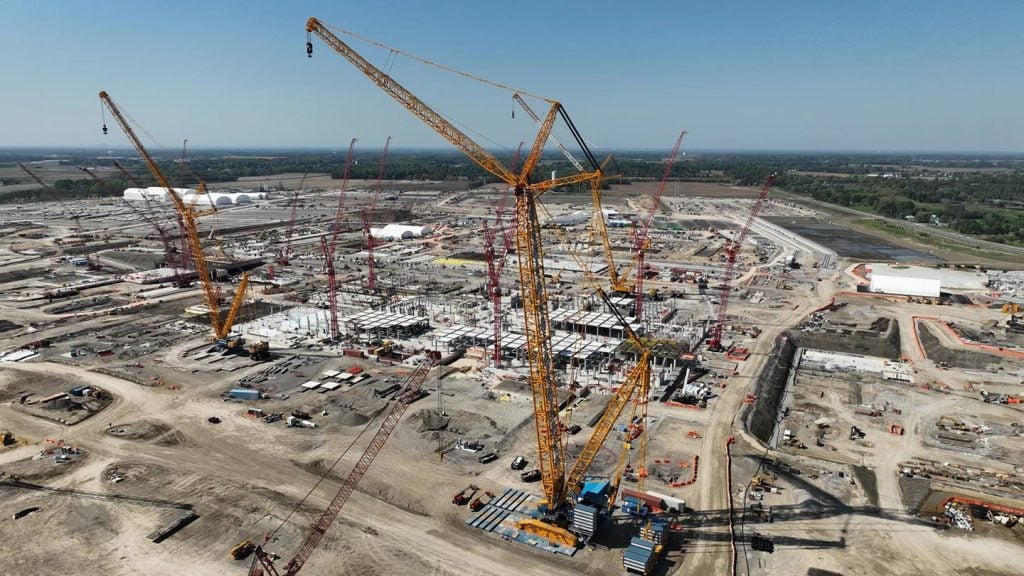
The low-earth orbit of space is getting busy. From only a handful of space companies venturing out of the earth’s atmosphere just five years ago, Global Data estimates that the space economy could reach $1tn by 2030.
In 2022, the space economy was worth approximately $450bn, according to GlobalData’s Thematic Intelligence The Space Report GlobalData forecasts – based on market data – that the space sector will be worth anywhere from between $760bn and $1trn by 2030, growing at a compound annual growth rate of between 6% and 10% between 2022 and 2030.
From its origins within public space agencies across the world, the space sector has seen a proliferation of start-ups and Big Tech players alike in recent years. Elon Musk’s Space X and Jeff Bezos’s Blue Horizon, to name a few, have opened up space to a new frontier – that of the private sector.
And with every new industry comes a whole raft of start-ups innovating and driving the market towards maturity. Bianca Cefalo is one of those innovators. Cefalo co-founded UK start-up Space DOTS which is redefining a space industry status-quo by providing on-orbit qualification (as-a-service) of advanced materials for space. The company’s labs actively test a full suite of materials’ properties in-situ, and in the exact space environment in which they will eventually be used.
Space DOTS closed its pre-seed round of $1.5m in June, and on 15 Sep the start-up was awarded the Space Business Catalyst Award by Thales Alenia Space, with which it is starting strategic partnership.
Cefalo is breaking new ground in more way than one. UK government figures released in March 2023 show that women-founded tech companies in the UK raised £3.6bn in venture capital funding in 2022, an increase of £700m on the year prior. Despite the improvement, that figure accounts for just 15% of the £24bn raised by tech companies last year.
How well do you really know your competitors?
Access the most comprehensive Company Profiles on the market, powered by GlobalData. Save hours of research. Gain competitive edge.

Thank you!
Your download email will arrive shortly
Not ready to buy yet? Download a free sample
We are confident about the unique quality of our Company Profiles. However, we want you to make the most beneficial decision for your business, so we offer a free sample that you can download by submitting the below form
By GlobalDataThat places Cefalo firmly in a minority of women-led start-ups – albeit a growing minority. The largest portion of female tech funding in 2022 went to pre-seed and seed tech start-ups, according to UK government figures.
Space start-ups leading the way on innovation
Cefalo became fascinated with Formula 1 racing as a child, a fascination which eventually led to a degree, a subsequent career, in aerospace engineering. From there she specialised in hypersonic aerodynamics, spacecraft thermal control solutions as well as microgravity and spacecraft SAR imaging.
After working on projects for NASA and moving to London to become a telecoms product manager at Airbus Defence and Space, Cefalo co-founded Space DOTS in 2021 with current CTO, James Sheppard Altan, also an Airbus alumni.
While Cefalo says the years working within the aerospace industry, particularly at Airbus, taught her such a lot, she also describes her frustration with the slow pace of innovation within such large and wieldy organisations.
But like any good engineer, Cefalo took this frustration and turned her attention towards a solution. “The problem was that I was hired to be an innovator and to create new solutions that will make the next generation of telecommunication spacecraft lighter, cheaper, easy to assemble more powerful,” says Cefalo. But the materials being used had not changed since the 1970s.
Cefalo’s approach was simple: “We cannot play with the geometry because we cannot fight the laws of physics, we have to play with the foundational things which are the materials.” And that was how Space DOTS was conceived.
The cross-industry problem was that while advanced materials both for structural problems and thermal solutions problems had been developed on earth, companies were struggling to qualify those materials for use in orbit. Moving the technology to the next level or the ‘last mile’ as Cefalo describes it requires: “booking a flight and going to space to validate the material.” But this was cost prohibitive for most companies, even if they were able to piggyback onto a large space mission.
Many years’ worth of innovation in advanced materials and millions of dollars spent on R&D on earth were “literally being wasted”, according to Cefalo.
So, the UK-based start-up created the first in-orbit advanced materials testing system. Essentially, it is a miniature payload the size of a mobile phone called the Barnacle DOT.
The idea is that the Barnacle DOT can piggyback onto any platform and work with any number of launchers, so companies can test advanced materials for a fraction of the existing price. And as the space economy grow and becomes increasingly commercialised, companies like Space DOTS will play an important role in innovating and developing it further.
The space economy at the cusp of commercialisation
Cefalo believes the space sector has reached an inflection point. “It’s not just about rockets or spacecraft anymore,” she says. Commercial space stations, a growing business ecosystem in space and renewable energy generation from space as well as an orbital habitat are all developing fast. “All of those cascading elements of the space economy will need an infrastructure and a supply chain that is going to be able to sustain its development,” adds Cefalo.
Ecosystems and supply chains that have been operating on earth will gradually move into orbit. “If you want to manufacture in space, you need quality control in space,” says Cefalo. And in the next decades, every business will become a space business, she adds. Something that businesses should take stock of now if they want to remain relevant.






